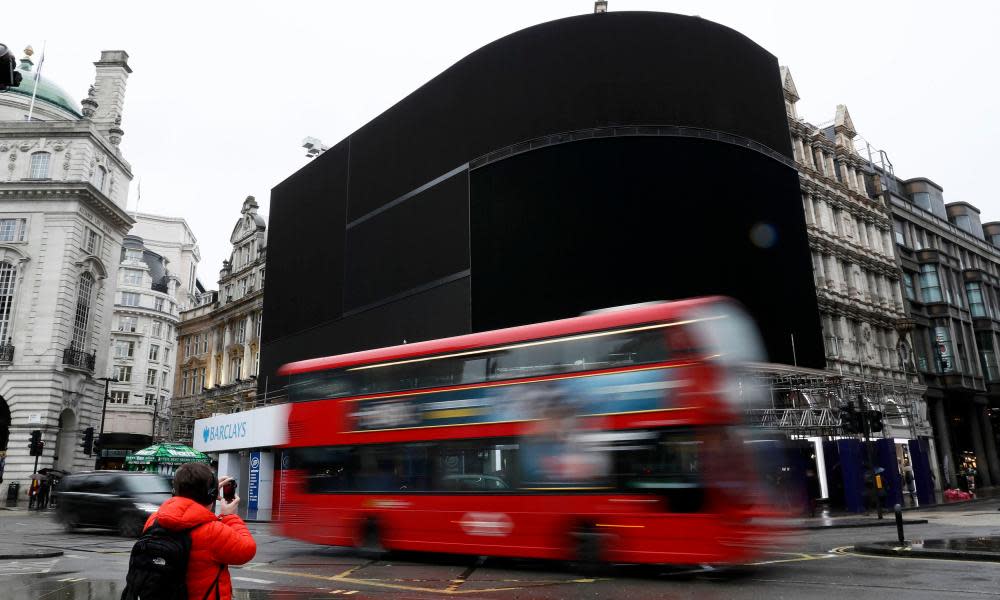I was transphobically abused, and the other bus passengers did nothing

Last Friday evening, as I was sitting on a bus wearing female clothes, I was a victim of a hate crime. I am a non-binary drag queen – male at birth – and have learned never to take public transport when I’m in drag; since my drag sister was physically assaulted on the streets two years ago, it just hasn’t felt safe. But last Friday many tens of thousands of people took to the streets of London to protest against Trump’s visit, and the mood of the city was one of overwhelming solidarity. I had been marching with fellow trans, queer and non-binary comrades, and performed for the Women’s March rally in Parliament Square. The collective support from people of all races, genders and ages left me feeling invincible, and so I was confident taking the bus home this time.
But no later than 10 seconds after my sitting down, did the hate ensue. A man in his 40s screamed that “it was an abomination” for the driver to have let me on. With conviction, he said it was a “danger to children” for me to be on public transport, and that the driver was morally obliged to “throw” me off as a way to “protect kids”. The driver stayed quiet, removing neither me nor the perpetrator, and so things escalated. The offender yelled that if his “kids were there”, he’d “fuck me up to keep them safe”; he became alarmingly enraged, and I feared for my safety. Because his “kids weren’t there this time”, he decided not to pulverise me. Perhaps he thinks I should have been grateful.
How could anyone contend that the sight of someone sitting quietly poses a greater threat to children than the sight of someone being violently assaulted? Britain’s acute culture of intolerance breeds this conviction that “the other” deserves to be denigrated. Rather than critique our own systems of power, we are taught to blame immigrants for economic turbulence; instead of protecting trans women from acts of patriarchal violence, some of the British press seeks to vilify them as its culprits. Current waves of divisionism foster an environment in which violence towards minorities is pitched as protection, and it’s conducive to toxic forms of masculinity. For instance, in the three months following the hate-fuelled Leave campaign, attacks on LGBT people rose by a startling 147%. And during the World Cup, searches for helplines and resources about domestic violence markedly increased following matches where England lost to foreign competitors, another instance of national disappointment provoking male violence.
As unsettling as the entire experience on Friday was, what upset me the most was the response from other passengers – each and every one of whom averted their gaze, doing absolutely nothing to support me. When I spoke to Tom Rasmussen (26, who is a non-binary writer) – the drag sister I mention above – they explained their own experience of silence in the face of abuse: “Attacks of a homophobic and transphobic nature have been a part of my everyday life for as long as I can remember. From a young age I became aware that people weren’t going to intervene, perhaps because they didn’t want to jeopardise their safety. But what it feels like, as the person targeted, is that when everyone stays silent they agree with the person attacking you.”
I decided to ask my fellow bus passengers about their lack of intervention. One of the witnesses – a white man – responded: “Why would we put ourselves in danger, too?” To me, his sentiment is the perfect summation of how people with privilege uphold systems of oppression without even doing anything. For such a thought implies it is solely the responsibility of trans bodies to endure the labour of transphobia, and not anyone cisgender. It shares a bed with the belief that only people of colour should be fighting racism. The idea that it would be inconvenient for someone cisgender to intervene in a transphobic attack illustrates the inertia of privilege– “Why should I help you out when things are easy for me right here? It’s too much effort.”
You know what’s too much effort? Being non-binary in a binary society that sees you as degenerate, and coping with all the violence that comes with the territory. So to those privileged people whose identities carry a little less strain, I ask you this: would exerting some energy to help those who are struggling really be so tiring?
• Amrou Al-Kadhi is a British-Iraqi writer, drag performer, and filmmaker. Their work focuses on queer identity, cultural representation and race politics

 Yahoo News
Yahoo News 
